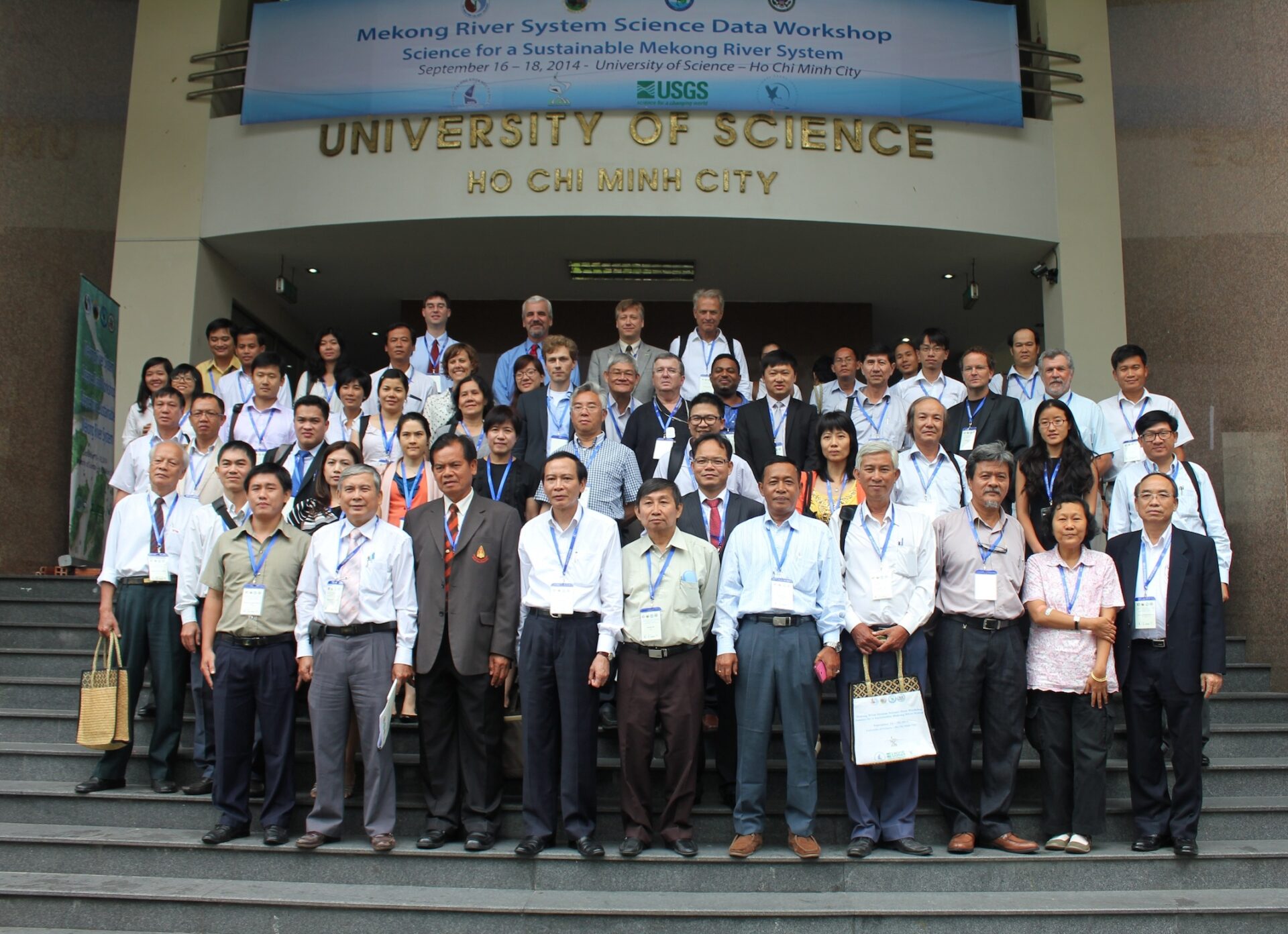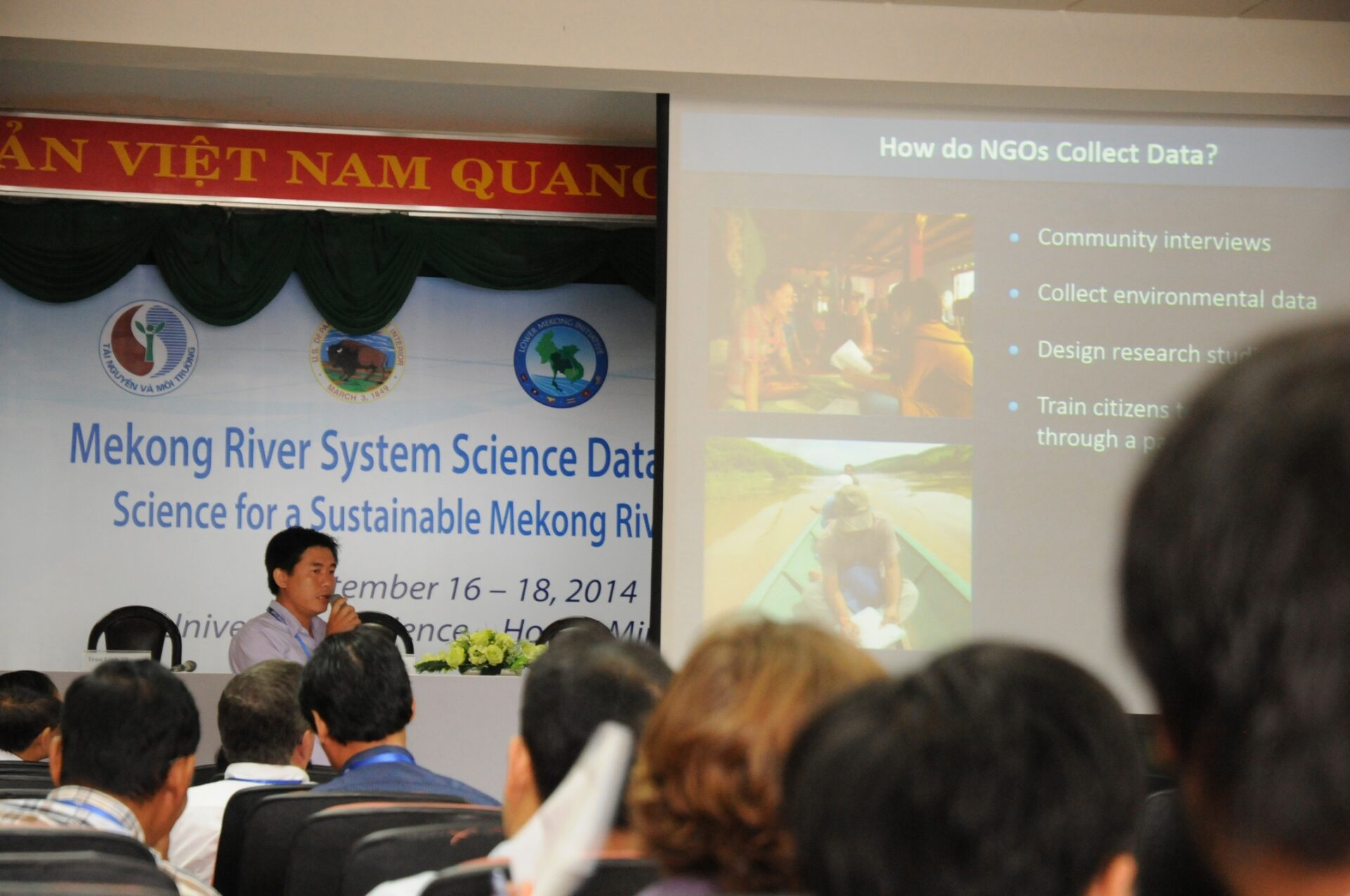Wednesday October 1, 2014

FISHBIO’s passion for fisheries research has lead to our working on complex conservation and water resource management issues with a variety of global conservation groups in the Mekong Basin. Recently, two of our staff were invited to participate in the Mekong River System Science Data Workshop: Science for a Sustainable Mekong River System. The workshop was hosted in Ho Chi Minh City, Vietnam, by the Vietnam Ministry of Natural Resources and Environment, the U.S. Department of the Interior, and a number of other local and international institutions. The primary goal of the workshop was to assess scientific information that can be used by government officials and others to validate, identify, and prioritize needed scientific studies in the Mekong River Basin, with a focus on sustainable river resources and dependent ecosystems.
Doug Demko, FISHBIO’s President, frequently presents at international science and fishery symposia, and gave a talk on the importance of fisheries research and monitoring to properly plan for hydropower and irrigation development, as well as reduce potential environmental impacts. His presentation highlighted FISHBIO activities in the Mekong and the United States, and drew on his more than 20 years of researching fish. Experience has taught him that appropriate planning is key to effectively developing and utilizing water resources, and this includes incorporating science at all stages of development. From pre-project research to ongoing monitoring throughout the operation of water infrastructure, gathering fisheries and environmental data allows managers to make informed decisions and actions on a real-time basis. His presentation is available to view below.
The workshop was well attended by researchers from Southeast Asia as well as from around the world. A central point of discussion was the challenge of identifying which data are most needed to effectively manage Mekong water, environmental, and fishery resources, as well as how to share and analyze those data in a timely manner for planning and management purposes. There are many challenges in the Mekong similar to issues water and fisheries resource managers faced in the United States several decades ago. Workshops and planning efforts such as this will help ensure that experiences can be shared across countries, and science can play a larger role in development decisions that ultimately affect the river, the fish, and the people of the Mekong Basin.

